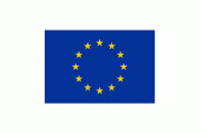Even though the Hardap region is largely less populated in comparison to other regions in the country, it remains one of the regions where poverty is rife. The region has a total population of 79 507 with 40% of the population living in rural areas. Approximately 35% of households do not have sanitation facilities, with Rehoboth rural constituency having the highest percentage of 50% of the population with no access to sanitation facilities. The situation is worse in Schlip, a settlement in the Rehoboth rural constituency. According to the Schlip Constituency Development (CDC) Office, the population in Schlip is estimated to be at approximately 1500 people with only one percent having access to sanitation facilities while the remaining 99% mainly resort to open defecation.
To this end, the Desert Research Foundation of Namibia (DRFN) implemented the project “A pro-poor approach to addressing sanitation and hygiene challenges in Schlip settlement, Hardap region”. The project was aimed at improving the health and wellbeing of the population in Schlip settlement through access to safe and dignified sanitation and improved hygiene practices. The DRFN in collaboration with the Hardap Regional Council (HRC), Ministry of Agriculture Water and Forestry-Directorate of Water Supply and Sanitation Coordination (MAWF-DWSSC) and the Ministry of Health and Social Services (MoHSS) coordinated the implementation of the project. The project was funded by the Civil Society Foundation of Namibia (CSFN) with support from the European Union (EU) and is for one year.
The DRFN has implemented several activities in Schlip to create awareness on health and hygiene for the community. The DRFN also established 6 Community Health Clubs which present the community with a platform to continue to engage with each other beyond the project on health, hygiene and their general wellbeing issues. The DRFN has empowered the community to find solutions to their challenges and implement them to improve their wellbeing. This was achieved through several capacity building initiatives implemented by the DRFN which were uniquely designed to address the challenges in Schlip. These initiatives were targeted to the whole community. Furthermore the DRFN trained 23 Health and Hygiene promoters who will continue to champion health and hygiene activities beyond the project lifespan.
The last activity the DRFN implemented in Schlip was the construction of 11 Otji toilets. These were constructed by DRFN and volunteers from the community of Schlip. These were constructed at the households of the most vulnerable community members of Schlip. The DRFN in consultation with its implementing partners and the Schlip community drew a selection criteria to identify beneficiaries of this initiative. The DRFN held a hand over ceremony which was attended by all the stakeholders as well as the media.
The DRFN team was led by Rennie Munyayi the Water Desk coordinator with assistance from Christeline Ndeleki, Greater Mukumbira and Lucky Ganeb. Contact the DRFN Water Desk for more information on this project.
Please visit our facebook page for the handover ceremony pictures.




































